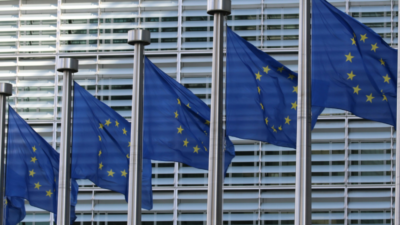
RESEARCH IN FOCUS
Platform governance
Platform Governance refers to the rules, regulations, and framework within which digital platforms in our society are managed. This includes social networks, online services, digital marketplaces, or messaging services, for example. These digital platform ecosystems facilitate the exchange of information, goods, and services in our daily lives. As an integral part of our modern communication, they also have a profound impact on public discourse and economic processes. In our research on sustainable platform governance, we therefore examine how entrepreneurial goals, individual rights, and societal values can be harmonised in these online communication spaces. This includes questions related to online platform regulation, competition law, freedom of speech, individual autonomy, and (democratically anchored) decision-making.
How do we communicate online? Who determines the rules for online discourse? The digital transformation of communication processes has given rise to a new form of public discourse, influenced in part by the rules and designs of social media and other digital platforms.
Good platform governance
One of the main challenges in creating a legitimate platform governance model is to strike a balance between promoting open communication and curbing problematic content, such as disinformation, hate speech, or scams. Within our research, we examine how such rules can be established, enforced, and democratically safeguarded. We also consider how algorithms and community guidelines influence the behavior and interactions of users within digital platform ecosystems. How can rules and practices be established to allow users to communicate safely and freely? How can digital platforms remain innovative and market-oriented while also contributing to the well-being of society?
The EU has also introduced (or is on the verge of introducing) a series of new regulations for online platforms, including the Digital Services Act (DSA), the Digital Markets Act (DMA), the Data Act (DA), and the AI Act. In interconnected projects, we investigate the impact of these normative platform governance approaches on the online discourse environment. What law prevails in these digital platform ecosystems? Is it the law of the platform operators or that of the EU and national states? And what about outside of Europe?
We are particularly interested in phenomena like online hate speech or the influence of recommendation algorithms and automated communication. The focus is on how the power of digital platforms affects individual and societal decision-making processes and social cohesion.
IN a nutshell
José van Dijck: Europe & responsible platform societies
The struggles of digitalisation between competing ideological systems and actors raise questions of responsibility.
Digital Salon
Lost in regulation
How can the tension between free expression and disinformation on social media platforms be resolved?
Insights & Power
Internet scientists meet platform decision-makers
How can the tension between free expression and disinformation on social media platforms be resolved?
Feature with Matthias C. Kettemann on independent monitoring bodies for social media.
Feature with Matthias C. Kettemann on the revolution in the German streaming landscape.
Feature with Wolfgang Schulz on how platforms should be shaped by society.
What could German digital policy look like after the Bundestag election?
What are the digital policy positions of Germany's parties for the 2025 Bundestag election?
Why access rights to platform data for researchers restrict, not promote, academic freedom
New German and EU digital laws grant researchers access rights to platform data, but narrow definitions of research risk undermining academic freedom.
Two years after the takeover: Four key policy changes of X under Musk
This article outlines four key policy changes of X since Musk’s 2022 takeover, highlighting how the platform's approach to content moderation has evolved.
Navigating platform power: From European elections to the regulatory future
Looking back at the European elections in June 2024, this blog post takes stock of the Digital Services Act’s effect in terms of navigating platform power.
European elections and digital policy: German party positions
To what extent are German parties addressing digital policy in the European elections? A glance at the election programmes reveals different priorities.
More Power to the People: How Platform Councils Can Make Online Communication More Democratic
Companies dominate digital spaces, impacting public debate. Could Platform Councils make online communication more democratic?











